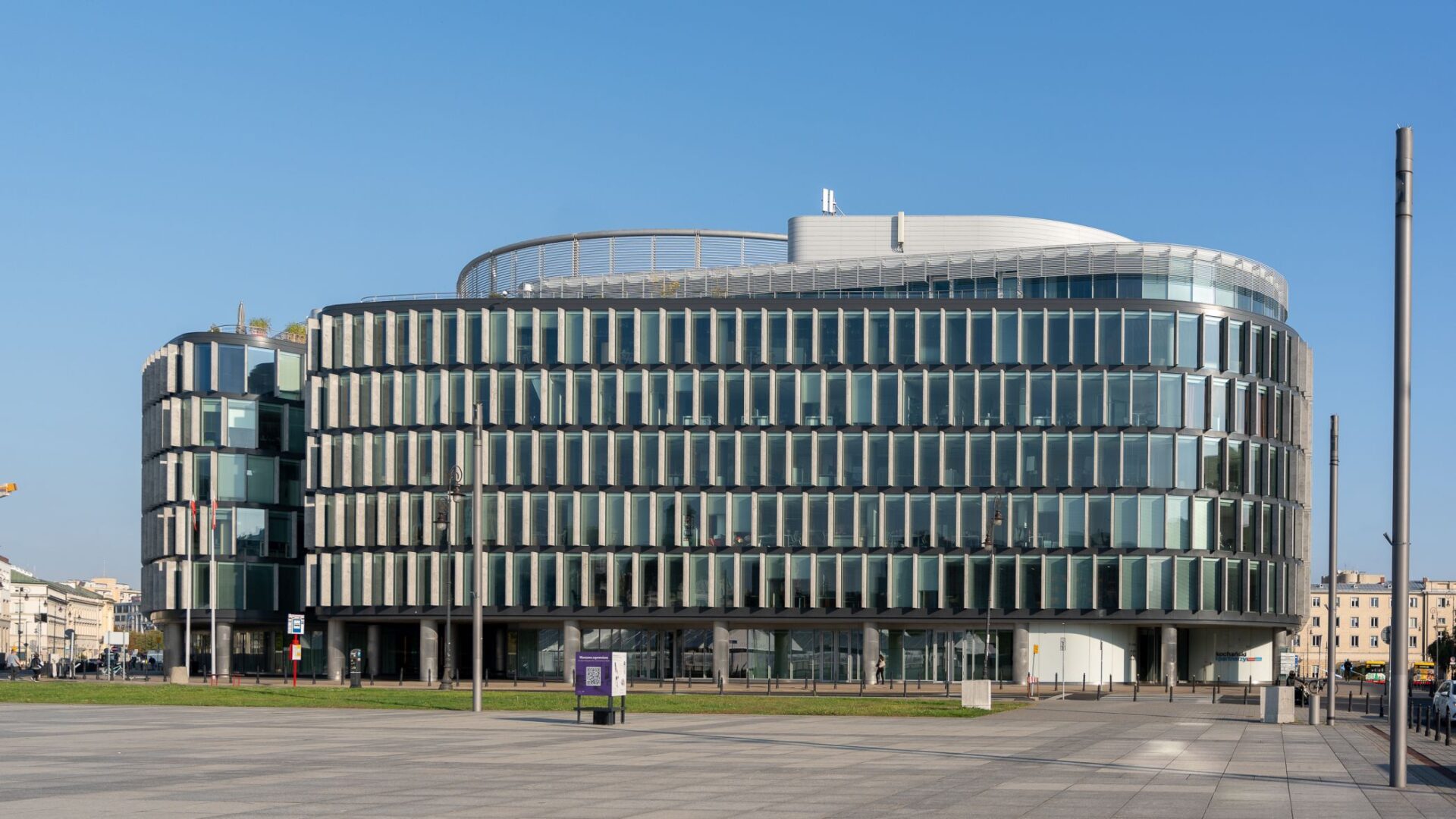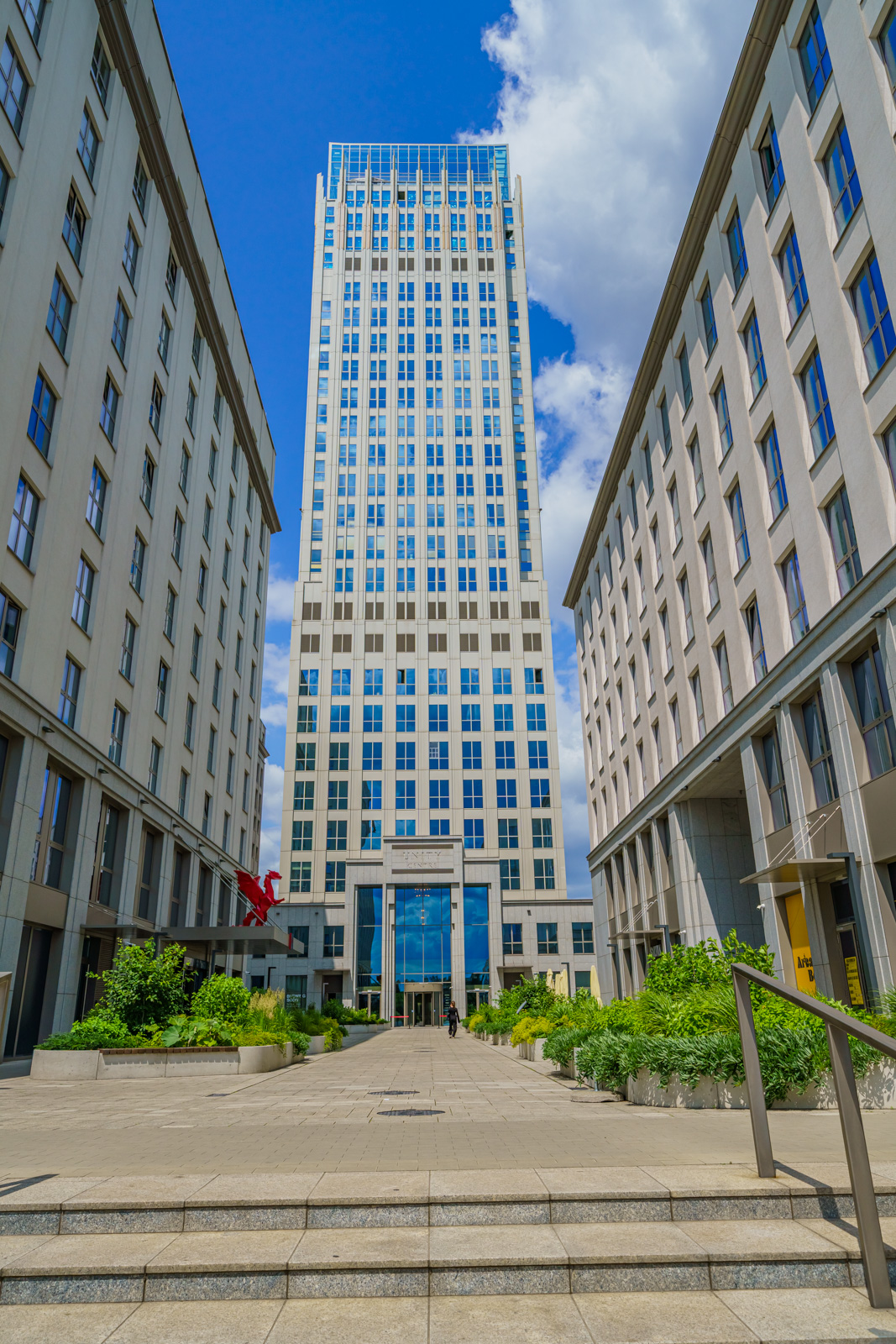Poland already has 10 million sqm of modern office space, says real estate advisory firm Savills. By 2028, the country’s total office stock may hit 24 million sqm.
Of the 10 million sqm of office space available across Poland, nearly 5,400,000 sqm is located in Warsaw while more than 4,600,000 sqm is in the country’s eight largest regional cities: Cracow, Wrocław, Tricity, Katowice, Poznań, Łódź, Lublin and Szczecin. Office buildings delivered to the market in the year to date pushed Poland’s total office stock up to this record-breaking volume. The largest completions include Olivia Star in Gdansk, Sagittarius Business House in Wrocław, Proximo II and Equator IV, both in Warsaw, O3 Business Campus III in Cracow, Spokojna 2 in Lublin and .KTW I in Katowice.
“Poland has doubled its total office stock in the space of just eight years to more than 10 million sqm, which is evidence of the Polish market’s spectacular growth momentum. Warsaw maintains its number one status in Central Europe in terms of office stock, but with Poland’s fast-growing economy, reflected for instance in the country’s reclassification in the world’s prestigious economic indices, Warsaw is catching up with Western European cities. Poland still needs to narrow the gap, but also has a strong growth potential, benefiting from robust occupier and investor activity. If Poland maintains its current momentum in the next ten years, it will see its office stock top 24 million sqm, only slightly more than the total office stock of Munich, which is the largest German office market,” said Tomasz Buras, Managing Director, Savills Poland.
More than half of Poland’s existing office stock was developed in the past ten years. During this period, Warsaw nearly doubled its office space while regional cities witnessed more than a threefold increase in office stock since 2008. By comparison, in the same period, Madrid saw an 8 percent increase from 12.1 million sqm to 13.1 million sqm, while Berlin expanded from nearly 18.4 million sqm to almost 19.6 million sqm (a 7 percent increase) and Brussels grew from 12.8 million sqm to 13 million sqm (up by 2 percent). Warsaw, however, still has half the office stock of Vienna and a quarter of Munich. Poland’s business capital city is ranked between Amsterdam (nearly 6.1 million sqm) and Dublin (3.7 million sqm).
With office take-up at 820,000 sqm in 2017, Warsaw came fourth among core European cities seeing more robust leasing activity than such developed markets as Frankfurt, Oslo and Madrid.
Only 10 years ago, Warsaw’s office stock was more than double the total size of Poland’s core regional cities (2,979,000 sqm vs approximately 1,435,000 sqm). At that time, Poland, inclusive of Warsaw, had less office space than regional cities have today. For the last five years, regional markets have, however, seen higher annual supply levels than Warsaw. The combined office stock of Cracow, Wrocław, Tricity, Katowice, Poznań, Lublin and Szczecin currently accounts for approximately 46 percent of Poland’s total office space, and is only approximately 777,000 sqm short of Warsaw’s.
In the last decade, 2016 was a record-breaking year on the Polish office market with new supply hitting 893,600 sqm across Poland. It saw the largest ever volume of new office space constructed within a year both in regions and in Warsaw.
“The growth of the Polish office market shows no sign of abating in the near future. As time goes by, existing buildings are likely to pose a growing challenge. Office buildings completed ten years ago are now entering their third leasing cycle in many locations. Such office buildings would not be considered old in many other countries. However, in Poland, such schemes are not only being upgraded but are also being increasingly singled out for demolition. Such projects are cost-intensive and require considerable commitment of property managers and landlords, but some investors are keen to pursue add-value opportunities. It’s the price of being a mature market that is growing increasingly competitive and demanding as it continues to develop,” said Tomasz Buras, Savills.







